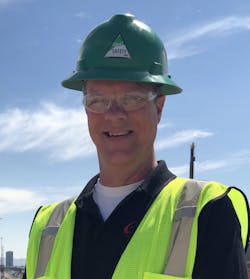Payments for body parts.
Customary for the mafia, but it is something that should be immediately dismissed when the hit list involves those making a living inside a work zone.
In October, lawmakers in Pennsylvania worked up a bill that would ticket those driving 11 mph or more in active work zones on the Pennsylvania Turnpike and expressways. A third offense would result in a $150 fine delivered by mail straight to your home. Signs would be posted in these lucky work zones warning drivers they have entered an electronically policed section. What a great campaign, something that should be emulated across the country. Well, at least at first glance. During the first three years of the bill, the money collected would be used to pay for the program, recruit and train state patrol officers and add more troopers to patrol work zones. Still a great campaign, right? Enter state lawmakers, who can quickly put a sarcastic tone on any positive word in the dictionary. Here is where the bill takes a sharp turn right into a construction barrel. In years four and five of the bill the funding formula gets out of whack. Almost half of the fine money would go into the state’s Motor License Fund to be appropriated by the General Assembly, with the rest funneled into work-zone safety and education measures.
Allow me to now breakdown the “payments for body parts.” I’m not talking about ripped appendages. Think of it more as a PowerPoint presentation with shaded arms and half bodies. When you pull almost half of the funding for “state appropriated” activities, it means of the $150 coming in for a third violation, about $85 would be used to maybe cover a portion of a worker’s safety. It is certainly not everything from top to bottom.
Before this bill becomes law it needs to go through some major revisions. First, second offenses should carry a $150 fine, with a third offense hitting violators for $300. A fourth ticket should send the driver to court, and the punishment should be so severe it will cost him, well, an arm or a leg. Again, just a figure of speech.
Every single penny should go in the pockets of the work-zone vests. Here is what it should pay for:
- A police presence in more work zones;
- Concrete barriers separating the workers from traffic. As I have pointed out in past columns, barrels do very little to stop a speeding hunk of steel; and
- Intelligent transportation solutions. These anecdotes would evolve to include connected vehicles that would prevent anyone from steering into work zones.
What exactly are these education measures the lawmakers are thinking of? We have been educating for decades, and a stronger message just is not doing enough to put down the phone or the bottle of scotch. The language of this bill should be tight, and the payment parade should go straight to the barricades holding back all of the traffic.
The state of Pennsylvania does deserve credit for taking some bold steps in an attempt to get speeds down to a safe level through work zones. Unfortunately, there are some bad parts, and when you are talking about protecting the lives of people, those parts can make you sick.



